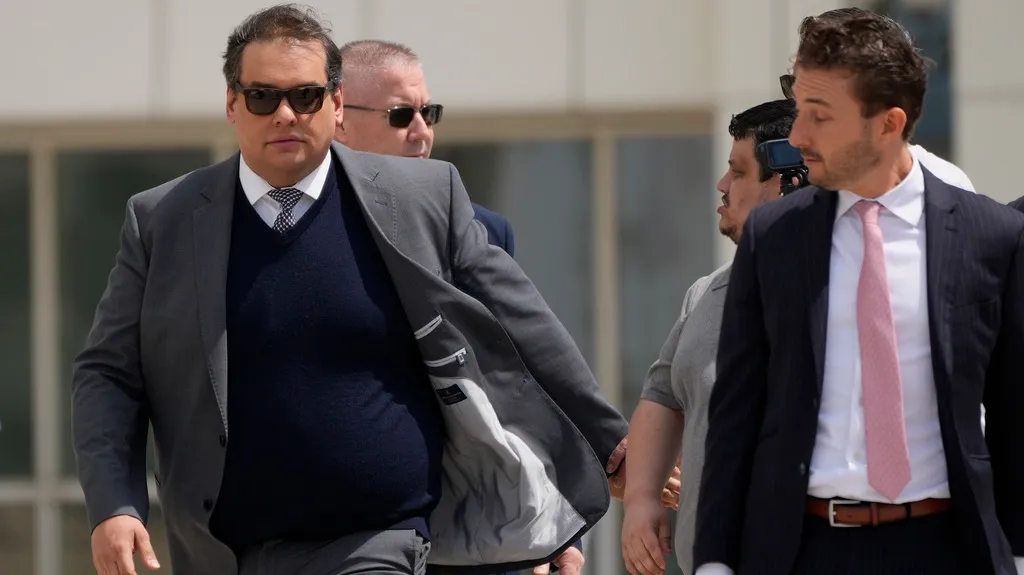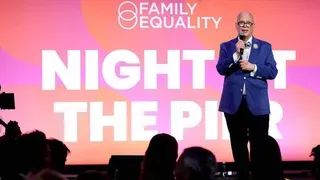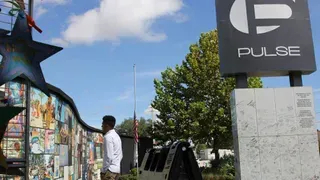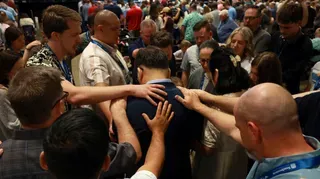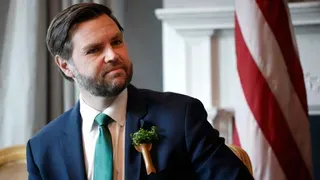July 31, 2009
Harvey Milk among Presidential Medal of Freedom honorees
David Foucher READ TIME: 5 MIN.
President Barack Obama is awarding the Presidential Medal of Freedom to 16 people, including gay San Francisco City Supervisor Harvey Milk, political ally Sen. Edward M. Kennedy, tennis legend Billie Jean King and retired Archbishop Desmond Tutu of South Africa.
The White House announced the list of recipients Thursday.
The medals, representing the nation's highest honor for a civilian, are the first to be awarded by Obama. He will present them at a White House ceremony on Aug. 12.
Other names on the list are: Race for the Cure founder Nancy Brinker, physicist Stephen Hawking, civil rights activist Rev. Joseph Lowery, and entertainers Sidney Poitier and Chita Rivera.
Former Rep. Jack Kemp, who died in May, and gay rights activist Harvey Milk, who was assassinated in 1978, will receive posthumous awards.
Accomplished in fields ranging from sports and art to science and medicine to politics and public policy and representing a diversity of backgrounds, the White House announcement said the recipients were selected for their work as "agents of change."
"Each saw an imperfect world and set about improving it, often overcoming great obstacles along the way," Obama said. "Their relentless devotion to breaking down barriers and lifting up their fellow citizens sets a standard to which we all should strive."
President Harry S. Truman established the Medal of Freedom in 1945 to recognize civilians for their efforts during World War II. President John F. Kennedy reinstated the medal in 1963 to honor distinguished service.
Though recipients are typically applauded, President George W. Bush's decision in 2004 to award them to three people central to his early Iraq policy were controversial.
Bush awarded medals to former CIA Director George Tenet, former Iraq administrator L. Paul Bremer and retired Gen. Tommy Franks. He was especially criticized for including Tenet, who came under fire for intelligence failures leading up to the Sept. 11, 2001, attacks and the Iraq war.
The 16 recipients are:
-Nancy Brinker, founder of Susan G. Komen for the Cure, a leading breast cancer grass-roots organization. Brinker created the organization after her sister died of breast cancer in 1980 and raises money for research and other services through events like the Race for the Cure.
-Pedro Jose Greer Jr., a doctor and assistant dean of academic affairs at Florida International University School of Medicine. He is the founder of Camillus Health Concern, which provides medical care to more than 10,000 homeless patients annually in Miami. He also is founder and medical director of the St. John Bosco Clinic, which provides medical care to poor children and adults in the city's Cuban community. His work has been recognized by several former presidents.
-Stephen Hawking, an internationally recognized physicist and mathematics professor at Cambridge University in London. The 67-year-old scientist is well known for his work on black holes. Hawking has been almost completely paralyzed for years and communicates through an electronic voice synthesizer. At age 21, he was diagnosed with Lou Gehrig's disease, an incurable degenerative disorder.
-Former Republican Rep. Jack Kemp of New York, who died in May. Kemp also was secretary of the Department of Housing and Urban Development under President George H.W. Bush and the GOP nominee for vice president in 1996. He was a quarterback for the Buffalo Bills before entering public service.
-Sen. Edward M. Kennedy, D-Mass., a member of the Senate for 46 years who endorsed Obama for president. Kennedy has been behind legislative efforts to improve the public schools, strengthen civil rights laws, support working people and provide health care for all. He was diagnosed with terminal brain cancer last year and has largely been absent as Congress debates Obama's plan to overhaul health care.
-Billie Jean King, the 1960s and 1970s tennis legend who became one of America's first openly gay major sports figures when she revealed her sexual orientation in 1981.
-Rev. Joseph Lowery, a leader in the civil rights movements since the early 1950s. Lowery helped organize the Montgomery bus boycott. He later co-founded the Southern Christian Leadership Conference, a leading civil rights group, with the Rev. Martin Luther King Jr. Lowery also led "Bloody Sunday" march from Selma to Montgomery in Alabama in 1965.
-Joe Medicine Crow, the last living Plains Indian war chief who fought in World War II, wearing war paint beneath his uniform. He became an acclaimed Native American historian who lectured extensively on the Battle of the Little Bighorn.
-Harvey Milk, who became the first openly gay elected official from a major U.S. city when he was elected to the San Francisco Board of Supervisors in 1977. Milk encouraged lesbian, gay, bisexual, and transgender people to live their lives openly. Milk, along with San Francisco Mayor George Moscone, was shot and killed in 1978 by Dan White, a former city supervisor.
-Sandra Day O'Connor, the first female U.S. Supreme Court justice. Nominated in 1981 by President Ronald Reagan, she retired in 2006.
-Sidney Poitier, the top black movie star in the 1950s and 1960s. He is the first African American to win an Academy Award for best actor, to receive an award at a top international film festival (the Venice Film Festival) and be the top grossing movie star in the U.S. Poitier began his acting career without any training or experience by auditioning at the American Negro Theatre.
-Chita Rivera, an accomplished actor, singer and dancer and winner of two Tony Awards. In 2002, Rivera became the first Hispanic recognized with a Kennedy Center Honor. She was propelled to stardom by her performance as Anita in the original Broadway premiere of "West Side Story."
-Mary Robinson, Ireland's first female president, serving from 1990-1997. She also is a former U.N. High Commissioner for Human Rights.
-Janet Davison Rowley, a doctor and distinguished professor of medicine at the University of Chicago. Rowley was the first scientist to identify chromosomal translocation as the cause of leukemia and other cancers. She was awarded the National Medal of Science, the nation's highest scientific honor, in 1999.
-Desmond Tutu, the retired Anglican Archbishop emeritus and formerly a leading anti-apartheid activist in South Africa, widely regarded as the country's moral conscience. As general secretary of the South African Council of Churches, he led an effort in support of justice and racial reconciliation in his country, work that earned him a Nobel Peace Prize in 1984. Tutu also chaired the South Africa Truth and Reconciliation Commission in 1995.
-Muhammad Yunus, a leader in global anti-poverty efforts who has pioneered the use of "micro loans" to provide credit to poor people who don't have collateral. He founded the Grameen Bank in 1983 in his native Bangladesh to provide these low-interest loans. Yunus was awarded a Nobel Peace Prize in 2006 for his work.
David Foucher is the CEO of the EDGE Media Network and Pride Labs LLC, is a member of the National Lesbian & Gay Journalist Association, and is accredited with the Online Society of Film Critics. David lives with his daughter in Dedham MA.
